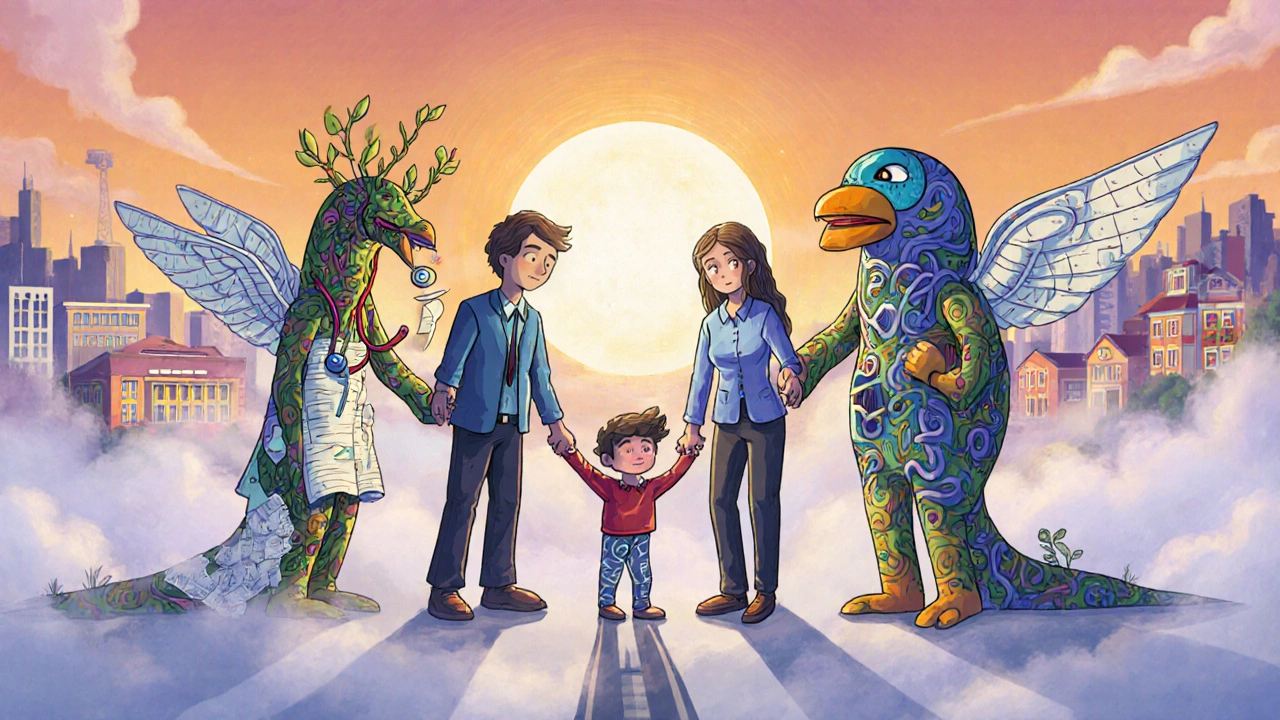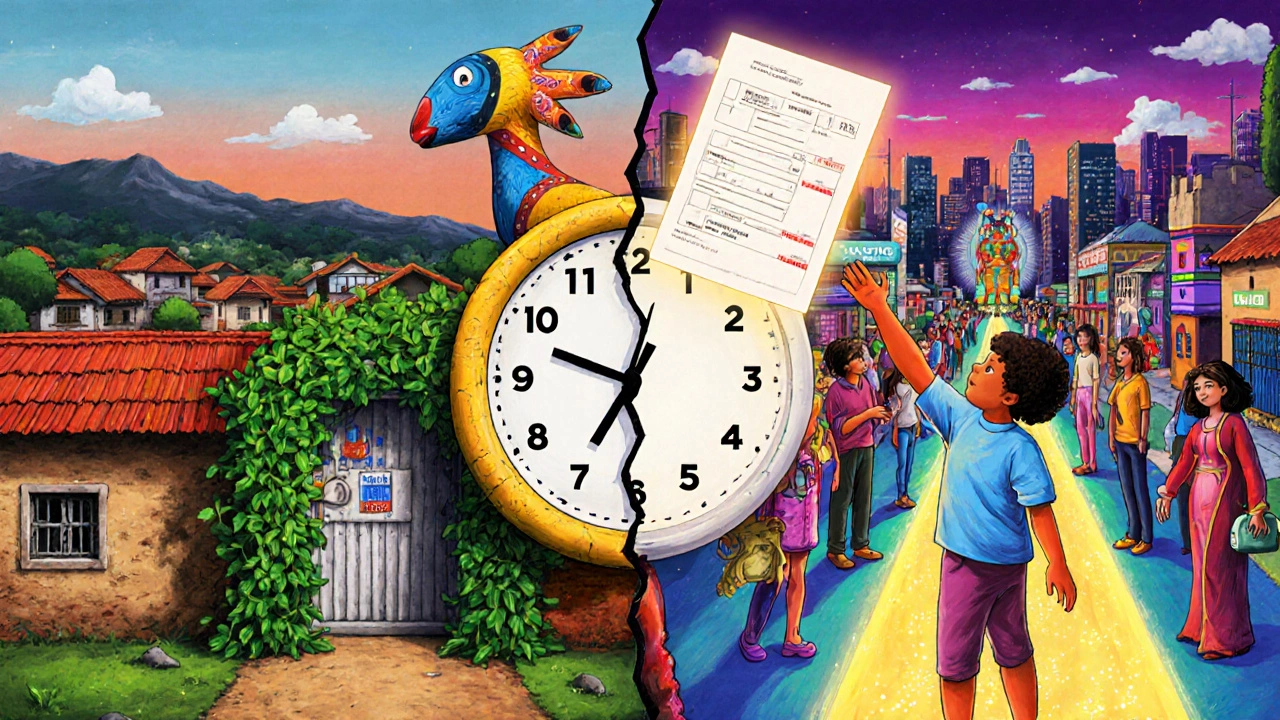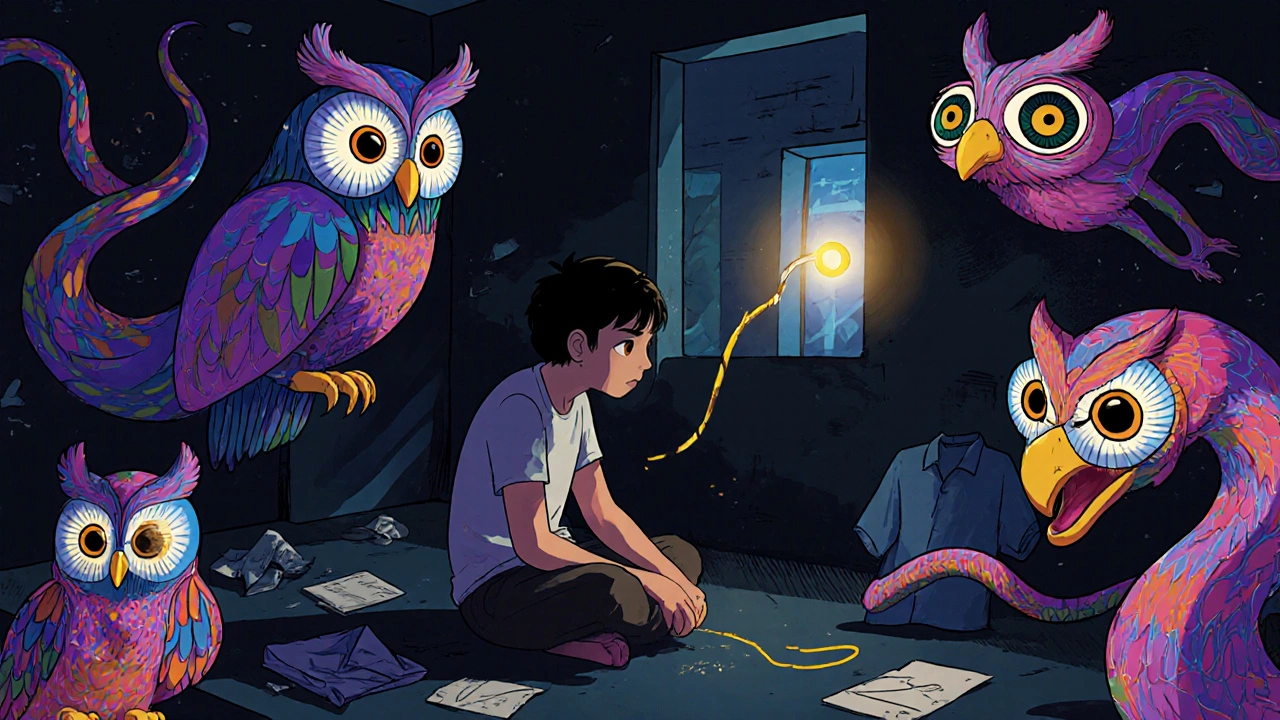When someone starts hearing voices that aren’t there, or becomes convinced that strangers are watching them, it’s not just paranoia-it could be the early stages of psychosis. Many people don’t recognize these changes until it’s too late. But the truth is, psychosis doesn’t come out of nowhere. It builds slowly, like a storm gathering on the horizon. And if you catch it early, recovery becomes not just possible-it becomes likely.
What Are the Early Signs of Psychosis?
Psychosis isn’t a diagnosis. It’s a symptom. It shows up when someone loses touch with reality. That doesn’t mean they’re crazy. It means their brain is sending confusing signals. The first signs are often subtle, easy to dismiss as stress, teen angst, or laziness.- A sharp drop in grades or job performance-78% of people experiencing their first episode show this.
- Trouble focusing, remembering things, or following conversations-reported in 85% of cases.
- Feeling suspicious or uneasy around people, even friends or family-67% of early cases include this.
- Suddenly avoiding social events, stopping calls, or spending all day alone-71% of individuals withdraw this way.
- Neglecting personal hygiene, skipping showers, wearing the same clothes for days-52% show this decline.
That’s the critical window. In the earliest phase, many still know their thoughts aren’t normal. But over weeks or months, that awareness fades. By the time they’re fully detached from reality, it’s harder to bring them back. That’s why catching psychosis early matters more than almost anything else.
Why Timing Is Everything
The average person in the U.S. goes 74 weeks-nearly two years-without treatment after psychosis starts. That’s too long. Every extra month without help makes recovery slower and less complete. Studies show each additional week of untreated psychosis reduces the chance of returning to school or work by 3.2%. After a year, the brain changes in ways that make recovery harder.But here’s the good news: if you act fast, outcomes improve dramatically. People who get help within the first three months of symptoms are three times more likely to return to normal life than those who wait. That’s not a guess. It’s backed by data from the NIMH’s RAISE study, which followed over 400 people across the country.
One program in Oregon, EASA, slashed the average time to treatment from 112 weeks to just 26 weeks by training teachers, pediatricians, and coaches to spot early signs. Schools started screening students. Clinics began offering free assessments. The result? More kids stayed in school. More held jobs. More stayed off the hospital ward.
What Is Coordinated Specialty Care?
Coordinated Specialty Care, or CSC, is the gold standard for treating first-episode psychosis. It’s not just medication. It’s a full team working together-doctors, therapists, case managers, peer counselors, and family support specialists-all under one roof.CSC has five core parts:
- Case management: A dedicated case manager visits you at home, helps with housing, transportation, and daily needs. Staff-to-client ratios are kept at 1:10 so no one falls through the cracks.
- Family education: Families get 12 to 20 weekly 90-minute sessions to learn what psychosis is, how to respond, and how to avoid triggering stress. It’s not about blame-it’s about support.
- Individual therapy: Cognitive Behavioral Therapy for psychosis (CBTp) helps people question strange beliefs without fighting them. Instead of saying, “That’s not real,” therapists ask, “What makes you think that?” It builds self-awareness, not resistance.
- Education and employment support: 80% of CSC participants return to school or work within three months. Programs help with resumes, job interviews, tutoring, and flexible schedules.
- Medication management: Antipsychotic meds are used, but at low doses-25% to 50% of standard adult doses. They’re slowly adjusted based on how the person responds. Side effects are monitored closely.
This isn’t theoretical. The RAISE-ETP study showed CSC users had 58% greater improvement in hallucinations and delusions, 42% better ability to function in daily life, and 35% higher rates of sticking with treatment after two years. Hospital stays dropped by 45%. Employment rates jumped 60%.

Who Gets Access-and Who Doesn’t?
There are 347 certified CSC programs in the U.S. right now. They serve about 28,500 people each year. Sounds like progress, right? But only 42% of people with first-episode psychosis actually get into CSC within the critical two-year window.Why? Access is uneven. In cities, 84% of neighborhoods have a CSC clinic nearby. In rural areas? Only 28%. That’s a massive gap. Many people never even hear about it. Their doctors don’t know the options. Their insurance doesn’t cover it. Or worse-they’re told to “wait and see.”
There’s also a racial disparity. Black Americans wait, on average, 2.4 times longer than White Americans to get help. That’s not because they’re less likely to seek care-it’s because systems fail them. Studies show Black patients are more often misdiagnosed, sent to emergency rooms instead of specialty clinics, and prescribed higher doses of medication without proper monitoring.
The 21st Century Cures Act requires Medicaid to cover CSC by 2025. Thirty-two states have already created billing codes for it. That’s progress. But funding is still unstable. Nearly 40% of programs rely on short-term grants. One budget cut can shut down a whole team.
How to Get Help
If you or someone you know is showing early signs, don’t wait. Don’t hope it’s just a phase. Here’s what to do:- Use the PQ-16: This is a 16-question screening tool used by clinics. A score of 8 or higher means you need a full evaluation. It’s free and available online.
- Go to a primary care doctor: Ask for a referral to an early psychosis program. Say: “I’m concerned about possible early psychosis.” Most doctors know where to send you.
- Call a local mental health center: Search “early psychosis program near me.” Many offer walk-in assessments.
- Don’t delay: The “golden hour” concept means the first 72 hours after symptoms appear are the most important. Get evaluated as soon as possible.
If you’re a parent, teacher, or friend-you can be the bridge to care. Notice changes. Speak up. Say: “I’ve noticed you’ve been withdrawing. I care about you. Let’s get you checked out.”

What’s Next for Psychosis Care?
The future is promising. In 2023, the National Institute of Mental Health launched EPINET, a network tracking 15 key outcomes across 200+ CSC programs. Early results show 63% of participants achieve full symptom remission within a year.Researchers are also testing blood tests that can predict psychosis with 82% accuracy by spotting 12 biological markers. That’s not science fiction-it’s happening now. And the RAISE-3 study is working to make CSC more effective for Black, Latino, and Indigenous communities, where current models have fallen short.
Telehealth and mobile apps are helping too. Programs like PRIME Care now use apps to track mood, sleep, and hallucinations daily. But here’s the catch: teens use these tools less than adults. Human connection still matters most.
By 2027, experts predict 75% of first-episode psychosis cases will be treated through CSC. That could cut long-term disability rates from 65% down to 40%. That’s not just numbers. That’s people keeping their jobs. Finishing school. Raising families. Living full lives.
What You Can Do Today
Psychosis isn’t a life sentence. It’s a medical condition-and like diabetes or asthma-it responds best to early, consistent care. The biggest barrier isn’t science. It’s awareness.If you’re reading this and thinking, “Could this be me?”-you’re not alone. And you’re not broken. Help exists. It works. And it’s waiting.
Don’t wait for a crisis. Don’t wait for someone else to act. Call a clinic. Talk to a doctor. Reach out. Your next step could change everything.
Can psychosis be cured?
Psychosis isn’t usually “cured” like an infection, but it can be fully managed. With early treatment through Coordinated Specialty Care, most people stop having hallucinations or delusions and return to normal life. Many go back to school, work, and relationships. Recovery means living well-even if you still take medication or need occasional support.
Is psychosis the same as schizophrenia?
No. Psychosis is a symptom. Schizophrenia is one possible diagnosis that includes psychosis. But psychosis can also happen in bipolar disorder, severe depression, after drug use, or due to brain injury. Many people have one episode of psychosis and never develop schizophrenia. Early treatment reduces the chance of it becoming a long-term condition.
Do I need medication for psychosis?
Medication is often part of treatment, but it’s not the only part. Second-generation antipsychotics are used at low doses-starting at 25-50% of normal adult levels-to reduce side effects. The goal isn’t to numb you, but to help your brain reset. Many people reduce or stop meds over time with therapy and support. Decisions are made together with your care team.
Can teens get Coordinated Specialty Care?
Yes. CSC programs are designed for people aged 15 to 30 who are experiencing their first episode of psychosis. Many programs have youth specialists who understand school pressures, social anxiety, and family dynamics. Teens respond especially well to team-based care that includes education support and peer mentors.
What if I’m scared to tell someone?
It’s normal to feel afraid. But silence makes it harder. Start small. Tell one trusted person-a teacher, a cousin, a doctor. You don’t have to say “I think I’m losing touch with reality.” Just say, “I’ve been feeling off lately, and I think I need help.” Most providers offer confidential, non-judgmental assessments. Getting help is a sign of strength, not weakness.
How much does Coordinated Specialty Care cost?
Most CSC programs accept Medicaid, Medicare, and private insurance. Many offer sliding scale fees. Even if you’re uninsured, community mental health centers often provide services at no cost. The average annual cost per person is about $65,000-but that’s offset by $17,000 in savings from avoided hospital stays and emergency care. In the long run, early care saves money and lives.

Nosipho Mbambo
November 19, 2025 AT 06:48Ron and Gill Day
November 21, 2025 AT 04:10Alyssa Torres
November 22, 2025 AT 13:55Summer Joy
November 22, 2025 AT 19:22Aruna Urban Planner
November 23, 2025 AT 06:05Nicole Ziegler
November 23, 2025 AT 13:47Bharat Alasandi
November 24, 2025 AT 13:01Kristi Bennardo
November 24, 2025 AT 23:10Shiv Karan Singh
November 26, 2025 AT 10:06Ravi boy
November 26, 2025 AT 23:01Matthew Karrs
November 28, 2025 AT 13:53Matthew Peters
November 30, 2025 AT 09:48Liam Strachan
November 30, 2025 AT 10:10Gerald Cheruiyot
December 1, 2025 AT 14:47